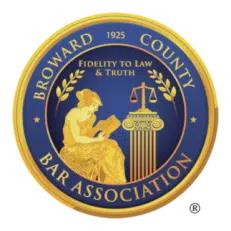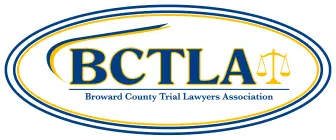
Involved in a rideshare accident in Portland? You likely have many questions. This article will explain why you need a Portland rideshare accident lawyer, how to determine liability, and what steps to take after the accident. Stay informed to protect your rights and secure fair compensation.
Key Takeaways
- Rideshare accident claims involve complex liability issues influenced by the driver’s status on the rideshare app, making legal guidance essential.
- Victims can seek compensation for both economic and non-economic damages, emphasizing the importance of documenting medical expenses and losses.
- Many rideshare accident lawyers operate on a contingency fee basis, allowing injured parties to access legal representation without upfront costs.
Why You Need a Portland Rideshare Accident Lawyer
Rideshare accidents present unique challenges compared to traditional car accidents. The independent contractor status of rideshare drivers often complicates liability issues, making it difficult for accident victims to determine whose insurance to contact and who is responsible for damages. This confusion can be daunting, especially when dealing with injuries and the intimidating nature of large ridesharing accident companies.
An experienced Uber accident attorney or rideshare accident lawyer can greatly improve your chances of receiving fair compensation for your injuries. These professionals adeptly handle the intricate claims process, preventing you from accepting inadequate settlements from insurers. Their negotiation skills are crucial in achieving the best possible outcome for your case.
Determining Liability in a Portland Rideshare Accident
Determining liability in a rideshare accident involves several factors, primarily the activity of the Uber or Lyft driver on the rideshare app at the time of the accident. Was the driver waiting for a ride request, en route to pick up a passenger, or actively transporting a passenger? These scenarios significantly influence liability and the applicable insurance coverage.
Rideshare companies like Uber and Lyft have different tiers of insurance coverage depending on the status of Uber and Lyft drivers. These varying levels of insurance can complicate the process of establishing liability. A thorough investigation is often required to determine who is responsible for the accident and to what extent.
This is where an experienced rideshare accident lawyer becomes invaluable.
When the Rideshare Driver Is Liable
If the rideshare driver’s app is off at the time of the accident, their personal auto insurance typically covers the damages. In this scenario, the driver is considered off-duty, and the rideshare company is not liable.
Understanding this distinction is key, as it determines which insurance policy will cover the damages.
When Uber or Lyft Is Partially Liable
Partial liability arises when the rideshare driver, such as a Lyft driver, has their app on but has not yet accepted a ride request. In these cases, both the driver’s personal insurance and Uber or Lyft’s contingent liability coverage may apply. This dual coverage can create a complex situation for accident victims trying to navigate their claims.
In these cases, legal precedents and the specifics of the accident are critical in determining liability. An experienced rideshare accident lawyer can clarify your rights and guide you in pursuing the appropriate insurance claims for adequate compensation.
When Uber or Lyft Is Fully Liable
When a rideshare driver has accepted a ride and is either en route to pick up a passenger or actively transporting one, Uber or Lyft’s liability coverage comes into effect. This is the most straightforward scenario for proving liability, as the rideshare company’s insurance fully covers the accident.
Here, the rideshare company’s insurance policy covers the damages, simplifying the process of securing compensation for injuries and other losses. A skilled rideshare accident lawyer can use this clarity to maximize your compensation.
What to Do After a Rideshare Accident in Portland
The immediate aftermath of a rideshare accident can be overwhelming, but taking the right steps is crucial.
First and foremost, seek medical attention, even if your injuries seem minor. This not only ensures your health but also establishes a medical record that can be critical for your claim.
Additionally, document the accident scene by taking photos, gathering information from all drivers involved, and noting any witness details.
Next, report the accident to the rideshare company through their app to ensure the incident involving the Uber or Lyft vehicle is documented.
It’s also important to notify your own insurance provider, even if the rideshare company’s insurance is expected to cover the damages.
Consult with a rideshare accident lawyer before speaking with any insurance adjusters to protect your rights and manage the complex claims process.
Common Causes of Rideshare Accidents in Portland
Rideshare accidents in Portland can stem from various causes. Distracted driving is a significant factor, with many rideshare drivers engaging in activities like texting while driving, which can be even more dangerous than drunk driving. Driver fatigue is another common issue, as rideshare drivers often work long hours to maximize their earnings.
Traffic law violations also contribute to the frequency of rideshare accidents. These violations can include speeding, running red lights, and other reckless behaviors that increase the risk of accidents. Understanding these common causes can help you be more aware and cautious when using rideshare services.
Types of Rideshare Accidents
Rideshare accidents can occur in various forms, each presenting unique challenges and circumstances. Understanding these different types of accidents is crucial for determining the best course of action and seeking fair compensation. Here are some common types of rideshare accidents:
- Rear-end Collisions: These are the most frequent type of rideshare accident, often resulting from distracted driving, tailgating, or sudden stops. Rear-end collisions can cause significant injuries, including whiplash and back injuries, making it essential to seek medical attention and legal advice promptly.
- T-bone Accidents: Occurring at intersections, T-bone accidents happen when a rideshare vehicle is struck on the side by another car. These accidents are often due to failure to yield or run a red light and can result in severe injuries to passengers and drivers alike.
- Head-on Collisions: Among the most severe types of rideshare accidents, head-on collisions are typically caused by reckless driving, speeding, or driving under the influence. These accidents can lead to catastrophic injuries or fatalities, necessitating immediate medical and legal intervention.
- Pedestrian Accidents: When a rideshare vehicle strikes a pedestrian, the consequences can be devastating. These accidents often occur due to failure to yield, speeding, or distracted driving. Pedestrian accidents require thorough investigation to determine liability and secure compensation for the injured party.
- Bicycle Accidents: Similar to pedestrian accidents, bicycle accidents involve a rideshare vehicle striking a bicyclist. These incidents often result from failure to yield, speeding, or distracted driving. Bicyclists are particularly vulnerable, and injuries can be severe, requiring comprehensive legal support to navigate the claims process.
- Multi-vehicle Accidents: Involving multiple vehicles, these accidents can be complex and challenging to resolve. Often caused by reckless driving, speeding, or inclement weather, multi-vehicle accidents require detailed investigation to determine fault and ensure fair compensation for all parties involved.
Understanding these types of rideshare accidents and their common causes can help you be more aware and cautious when using rideshare services. If you find yourself involved in any of these accidents, consulting with an experienced rideshare accident lawyer is crucial to protect your rights and secure fair compensation.
Types of Compensation Available for Rideshare Accident Victims
Victims of rideshare accidents can seek various types of compensation. Economic damages typically include medical expenses, lost wages, and diminished earning capacity due to injuries. Non-economic damages cover physical pain and suffering, emotional distress, and loss of enjoyment of life.
Keeping detailed records of all medical treatments and expenses related to your injuries is essential. This documentation supports your claim and helps ensure you receive fair compensation for your suffering and losses.
Navigating Insurance Claims After a Rideshare Accident
Navigating insurance claims after a rideshare accident is often challenging. Understanding the complexities of rideshare insurance policies is crucial for securing deserved compensation. Consulting with an experienced rideshare accident lawyer before dealing with insurance adjusters can greatly influence the outcome of your claim.
Insurance companies often offer low settlement amounts in an attempt to minimize their payouts. An experienced insurance company lawyer can negotiate on your behalf, ensuring you receive compensation that truly reflects your injuries and losses.
Proving Fault in a Rideshare Accident
Proving fault in a rideshare accident can be a complex and challenging process, requiring the expertise of an experienced rideshare accident lawyer. To establish fault, several key elements must be proven:
- Duty of Care: The rideshare driver or company has a duty to exercise reasonable care to prevent harm to others. This means they were expected to follow traffic laws and operate their vehicle safely.
- Breach of Duty: The rideshare driver or company failed to exercise reasonable care, resulting in the accident. This breach could involve actions like distracted driving, speeding, or failing to yield.
- Causation: The breach of duty directly caused the accident and the resulting injuries. It must be shown that the driver’s or company’s negligence was the primary factor leading to the accident.
- Damages: The accident resulted in physical harm, emotional distress, or financial losses. These damages must be documented and proven to secure compensation.
To prove fault, an experienced rideshare accident lawyer will gather and analyze various types of evidence, including:
- Police Reports: Official reports detailing the accident and any citations issued can provide crucial information about the incident and help establish fault.
- Witness Statements: Testimony from witnesses who saw the accident or have relevant information can support your claim and provide additional perspectives on how the accident occurred.
- Medical Records: Documentation of injuries and medical treatment is essential for proving the extent of your injuries and their impact on your life.
- Vehicle Inspection Reports: Reports detailing any damage to the vehicles involved can help determine the severity of the accident and the forces involved.
- Rideshare Company Records: Records from the rideshare company, including driver logs and vehicle maintenance records, can provide insights into the driver’s behavior and the condition of the vehicle at the time of the accident.
By gathering and analyzing this evidence, an experienced rideshare accident lawyer can help establish fault and secure fair compensation for victims of rideshare accidents. Navigating the complexities of proving fault requires professional legal support to ensure your rights are protected and you receive the compensation you deserve.
Can You Sue Uber or Lyft Directly?
Yes, under certain circumstances, you can sue Uber or Lyft directly. If their drivers are found to be primarily at fault for an accident, or if the company is negligent in its driver screening processes, legal action against the rideshare companies may be warranted.
An experienced rideshare accident lawyer can help determine if suing a Lyft accident lawyer or an Uber or Lyft accident is the best course of action for your case.
Steps to Take if Injured as a Rideshare Passenger
If injured as a rideshare passenger, take essential steps to protect your rights and secure compensation. First, seek medical treatment and document all related expenses. Compensation may include coverage for medical bills, lost wages, pain and suffering, and emotional damages like anxiety and PTSD.
Hiring a lawyer to assist with your claim is vital. They help establish the extent of your injuries, negotiate with insurance adjusters, and ensure you receive fair compensation. Proving the extent of your injuries and navigating the claims process can be challenging without professional legal help.
How Much Does It Cost to Hire a Portland Rideshare Accident Lawyer?
Many people worry about the cost of hiring a lawyer after a rideshare accident. However, most rideshare accident lawyers work on a contingency fee basis, meaning you don’t have to pay upfront. Instead, the lawyer’s fees are deducted from the settlement amount. This structure allows you to access legal representation without financial strain.
Additionally, many law firms, including ours, offer a free consultation to discuss your case and explore your legal options. This initial meeting can help you understand the potential costs and benefits of hiring a lawyer for your rideshare accident case.
Why Choose Our Experienced Portland Rideshare Accident Lawyers?
Choosing the right lawyer can make all the difference in your rideshare accident case. Our experienced Portland rideshare accident lawyers are dedicated to providing compassionate legal support while diligently pursuing your personal injury claim. We conduct thorough investigations to establish liability and maximize the compensation you receive.
We also offer a free consultation to discuss the details of your accident and help you understand your legal options. Our commitment to our client’s well-being and our track record of successful outcomes make us the ideal choice for handling your rideshare accident case.
Frequently Asked Questions
Why do I need a rideshare accident lawyer?
You need a rideshare accident lawyer to effectively navigate the complex legal and insurance challenges involved, ensuring you receive the fair compensation you deserve for your injuries and losses.
Who is liable for a rideshare accident?
Liability in a rideshare accident is determined by the driver’s status on the app during the incident, which could involve the driver’s personal insurance, the rideshare company’s insurance, or both. It’s essential to evaluate these factors to ascertain responsible parties.
What should I do immediately after a rideshare accident?
Immediately after a rideshare accident, prioritize seeking medical attention and documenting the accident scene. Additionally, gather witness information, report to the rideshare company, and consider consulting a lawyer before discussing details with insurance adjusters.
Can I sue Uber or Lyft directly?
Yes, you can sue Uber or Lyft directly if their driver is primarily at fault or if the company was negligent in its hiring processes. Consulting an experienced lawyer can help you assess the viability of your case.
How much does it cost to hire a rideshare accident lawyer?
Hiring a rideshare accident lawyer typically involves no upfront costs, as many operate on a contingency fee basis, deducting their fees from your settlement. Additionally, many offer free consultations to evaluate your case.








